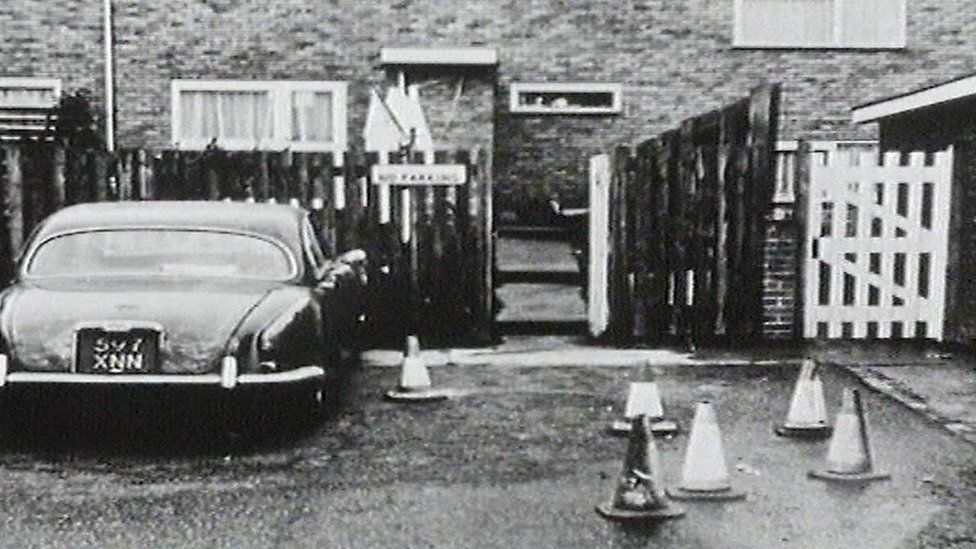
Terry Clarke was killed after he returned home from a bar
Tanya Gupta
BBC News, South East
A murder conviction from 1972 should be re-examined by the Criminal Cases Review Commission (CCRC) more than 50 years on, a Kent MP has said.
Damian Collins will raise the case of Paul Cleeland in a Westminster debate, external.
Cleeland, 81, from Folkestone, denied murdering Terry Clarke in Hertfordshire in 1972 but served 26 years in jail.
“A lot of the evidence that was used in court, presented in court, wouldn’t be admissible today,” the MP said. The CCRC said the case had been subject to thorough reviews.
Paul Cleeland has been fighting to clear his name for decades
Suspected gangland boss Mr Clarke, a friend of Cleeland’s, was shot in Stevenage after returning home from a bar on 5 November.
Cleeland insisted he was innocent, but legal challenges failed. Several applications to the CCRC were refused along with a bid for a judicial review.
Cleeland said: “It’s not me saying my conviction is unsafe.” He said evidence had come from independent expert Dudley Gibbs and arguments by his barrister Edward Fitzgerald QC.
“Take what they say and on those grounds, I can be relisted,” he said.
Image source, Julia Quenzler
Paul Cleeland represented himself in 1973
Mr Collins said the case was similar to that of Barry George, who was found not guilty of murdering Jill Dando at a retrial following doubts over reliability of gunshot residue evidence.
The MP said evidence on the firearm in Cleeland’s case was disputed and tests that could be done now showed lead on Cleeland’s clothing could have been environmental, not from a gun.
“There are a lot of grounds I think to challenge the conviction that he received. But the debate is really about his frustration and the difficulty he’s had to persuade the Criminal Cases Review Commission to look into his case and refer it back to the Court of Appeal.”
Image source, Gale Cleeland
Paul Cleeland was 30 when he was jailed
The MP compared the case to other wrongful convictions in the 1970s such as the Birmingham Six and Guildford Four.
He said: “My concern is that Paul’s case may be an example of a miscarriage of justice from the 1970s of which we are familiar with others from that period.”
Mr Collins said there was an ongoing government review into the CCRC and that he would like Cleeland’s case to be included.
He called on the CCRC to reconsider Cleeland’s arguments for his case to be referred to appeal.
Cleeland said he had concerns about getting “a fair hearing” and called for his case to go to an independent inquiry.
A CCRC spokesman said: “Mr Cleeland has made a number of applications to the CCRC, which have been subject to thorough reviews.
“One of those applications resulted in the CCRC referring Mr Cleeland’s conviction to the Court of Appeal, which upheld it.
“Other reviews concluded that there was no real possibility his conviction would be quashed if it were to be referred to the Court of Appeal.
“Mr Cleeland sought judicial review of the decisions not to refer and was unsuccessful.”
The CCRC highlighted a 2022 judgement, external which said Cleeland had made repeated applications “to the point of now being vexatious” and had challenged his conviction about 12 times.
Follow BBC South East on Facebook, external, on X, external, and on Instagram, external. Send your story ideas to southeasttoday@bbc.co.uk, external or WhatsApp us on 08081 002250.








